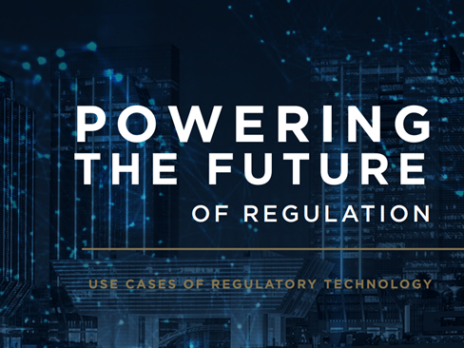

The UAE’s ecosystem for restructuring and insolvency has evolved significantly in less than a decade, developing its own playbook of international best practices, adopting learnings from the most impactful approaches, and turning around the fate of distressed businesses. This approach gave birth to the three-tiered approach of consensual reorganisation, restructuring in bankruptcy or rehabilitation and liquidation as a last resort in the UAE, as well as its capital city, Abu Dhabi.
Aligned with the UAE and Abu Dhabi’s economic vision, shortly after the launch of its financial free zone in Al Maryah Island, Abu Dhabi Global Market (ADGM), the International Financial Centre (IFC) of the capital city of the UAE, announced Insolvency Regulations 2015 based on the UK Insolvency Act and the Insolvency Rules 1986. Significant amendments were introduced in 2020 and 2021, followed by new Insolvency Regulations 2022 introduced last year. These successive enhancements have helped to tailor the UAE framework to the specific needs of offshore businesses and insolvency practitioners within the free zone.
ADGM’s rescue and rehabilitation culture
Because investors value ‘certainty’ and reliable earnings, businesses must demonstrate stability to build their stakeholders’ enduring trust and confidence. Investors increasingly look for financial stability and an all-encompassing business ecosystem that will stand firm in the face of headwinds.
ADGM’s overarching aim is to create opportunities for new international and regional businesses and make the capital city their destination of choice. The insolvency regime therefore aims to foster a “rescue and rehabilitation culture”, by providing companies that may struggle to continue as a going concern with a variety of options and supporting tools to restructure their debt and turn around their business.
Cleary Gottlieb, an ADGM-based restructuring firm, has spent a considerable amount of time on some of the largest regional restructurings with a view to either replicate some of the features of the ADGM restructuring regime in other jurisdictions and lobby the necessary changes to the local legislation, or use the ADGM investor-friendly regime. Commenting on ADGM’s rescue and rehabilitation culture, Polina Lyadnova, a partner at Cleary Gottlieb, says: “We have a proven track record for serving with innovation. We also believe in supporting every client relationship with intellectual agility, commercial acumen and a human touch. ADGM’s rescue and rehabilitation culture for the restructuring sector resonates with what we stand for.”
An evolving regime
The new insolvency framework, introduced in 2022, brought about some significant changes to the insolvency practitioners’ regime post-consultation with industry experts. Under the previous framework, practitioners were obligated to obtain a licence which includes having a registered office address within ADGM. The new rules replace this requirement and allow eligible individuals to follow an easy registration mandate in the ‘Insolvency Practitioner Register’ maintained by the ‘Registrar’.
There is also no annual renewal requirement, but a registered insolvency practitioner must provide the ‘Registrar’ with an annual confirmation statement, confirming details of any appointments under the Insolvency Regulations 2022 and compliance with the Insolvency Practitioner Rules. This would significantly reduce the administrative burden on insolvency practitioners who want to be registered within ADGM and encourage an increase in the number of registered practitioners in its vibrant ecosystem.
ADGM-based restructuring companies
A number of global and regional restructuring companies’ confidence has grown over the years in ADGM’s initiatives for creating success stories through turnaround tools present with its IFC. From access to capital, market, corporate tax benefits, strategic location, and talent to legal certainty, professional service providers, an advisory ecosystem, innovation and cutting-edge technology, ADGM stands as a well-rounded ecosystem.
Specialist players in this space, including funds such as SC Lowy, Blantyre Capital and Fidera Group; restructuring firms such as Alvarez and Marsal, FTI, Teneo and Rothschild; and specialist law firms such as DLA Piper, Quinn Emanuel, and Cleary Gottlieb call ADGM home and are supporting restructuring opportunities present in the region.
Blantyre Capital is a blue-chip special situations investment fund that is focused on partnering with companies in relaunching good businesses with temporary financial and operational challenges. It has a presence in Europe and North America and is currently in the process of establishing a presence in ADGM.
“ADGM has created a robust regulatory framework that will help drive economic growth and efficient capital markets,” says Mubashir Mukadam, chief investment officer at Blantyre Capital. “Our firm supports Abu Dhabi’s introduction of enhanced regulations and amendments that support the restructuring and insolvency sector. This is especially important given the challenging macroeconomic environment and the expected increase in special situations opportunities globally. Ultimately, this new framework will allow companies to access capital faster and more efficiently.”
Peter Somekh, managing partner, Middle East and Africa at DLA Piper adds: “As one of the world’s leading restructuring firms with a deep understanding of the regional market coupled with international reach enabling us to handle complex and sizeable assignments both seamlessly and cost-effectively, the inclusion of ADGM Courts and eCourts truly builds the confidence of various businesses to trust in ADGM’s regulatory system. It is a unique proposition that not all international financial centres of the world have. It completes and enhances the capabilities of ADGM.”
Matthew Wilde, a senior managing director at Teneo with 30 years of experience in restructuring across the globe, agrees that the IFC has established an ecosystem that works for all parties. “ADGM, with its now tested laws and Courts ecosystem, provides a platform that encompasses much of what restructuring stakeholders (debtors, creditors and their advisors) require when trying to save businesses and preserve value: a relatively predictable legal framework, control over who is appointed and who is not, the capacity to bring new money in, as debtor-in-possession financing and a broad range of procedures that support multiple options, including restructuring, rehabilitation, winding-up and bankruptcy processes. Stakeholders can benefit by accessing the ADGM’s tried and tested laws and legal framework, which is conducive to businesses and attractive to foreign investors.”
The role of ADGM Courts and Arbitration Centre
The courts play a critical role in the corporate restructuring and insolvency process of businesses. Having ADGM Courts and Arbitration Centre as a part of its jurisdiction, ADGM has built an enabling business environment that comes full circle and gives businesses end-to-end support in case a need arises for the services of the court. From preliminary steps, applications and hearings to witness reports and adjournments, ADGM Courts are fully equipped for the end-to-end handling of insolvency cases. The ADGM Arbitration Centre serves as a unique digitised space for arbitration hearings and mediations serving the international dispute resolution community through best practices.
ADGM carefully oversaw the Courts’ and Arbitration Centre’s pivotal role in the turnaround of companies. Keeping this in mind, the amendments to the Insolvency Regulations 2015 announced in 2020 provided greater clarity on the prescribed form and content in procedural matters under the regulations and aligned with the ADGM Courts eCourts platform. Improvements were also made to allow administrators to apply to the ADGM Courts to avail themselves of priority financing.
ADGM’s online court portal reflects that there have been six insolvency proceedings that have been filed between 2020 and till date. All of these are still in the phase of the Court of First Instance and are yet to reach the Court of Appeal phase. A particular example here is resolving a major cross-border corporate insolvency case in 2021 involving an ex-London Stock Exchange-listed organisation, NMC Healthcare Limited. In handling this case, ADGM Courts effectively played a supervisory role through which NMC Healthcare Group’s former joint administrators restructured the Group’s business with the overwhelming approval of creditors and investors.
SC Lowy, one of the pioneers in special situations credit investing in Asia and the Middle East that’s been investing in the region for over a decade, has welcomed the development of the ADGM restructuring regime and accompanying ecosystem. Berkay Oncel, Head of MENAT Investments at SC Lowy says: “We note the efficiency of the ADGM jurisdiction in resolving complex bankruptcy cases and preserving value for all stakeholders. We are encouraged to see more loan and restructuring documentation incorporating ADGM Courts as the main jurisdiction for dispute resolution, which will enable increased utilisation of the established framework and create favourable outcomes in cases that require sophisticated solutions.”
Fidera Group has recently completed the successful restructurings in bankruptcy of both KBBO and Emirates Healthcare Group. Both of these were executed with the Abu Dhabi onshore courts involving the first ever onshore law super-senior new money solutions.
Dominik Nagly, partner at Fidera Group says: “Fidera is excited to be a part of the restructuring cluster in ADGM and to bring our experience and expertise in dealing with complex processes and stakeholder dynamics to the UAE’s insolvency landscape. We are pleased that our investment has helped to turn around critical assets in the region and safeguard jobs.”
A significant shift
There has been a significant shift in the way restructuring was approached earlier. IFCs such as the ADGM are providing solutions cemented in strong and progressive regulatory frameworks that showcase both prevention and cure. A page turned over after decades that looks at restructuring as an opportunity to provide the financial industry confidence to use these regulatory tools and create success stories; turn challenges into opportunities through actual cases and not just in theory.
Overall, ADGM’s legal and regulatory framework, financial services infrastructure, and dispute-resolution mechanisms create an enabling environment for corporate restructuring. It provides companies with the necessary tools and support to navigate complex restructuring processes and emerge as more viable and sustainable entities.







